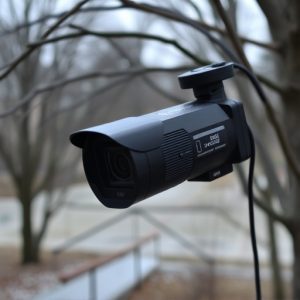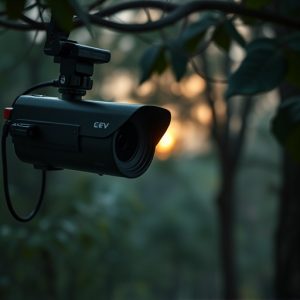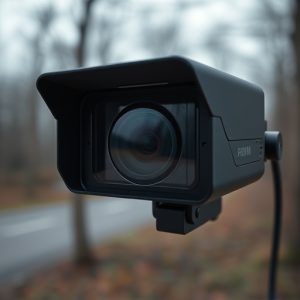Discrete Security Cameras for Renters: Balancing Privacy & Safety
In many places, tenants enjoy privacy rights in their rental homes. While landlords may have securit…….
In many places, tenants enjoy privacy rights in their rental homes. While landlords may have security concerns, they must balance these with tenant expectations by consulting local tenancy laws before installing surveillance equipment, like discrete security cameras disguised as everyday items. These cameras offer peace of mind and enhanced safety without compromising aesthetics, but raise privacy issues. Responsible implementation requires strategic placement in common areas, transparency about camera systems via clear signage and rental agreements, fostering trust and understanding with tenants.
In today’s digital era, landlords seek advanced solutions for property surveillance, yet tenants often worry about privacy breaches. This article delves into the world of discrete security cameras for renters, exploring legal considerations and creative placement techniques that balance safety with respect for tenant privacy. We examine various technology options, best practices, and ethical guidelines to ensure effective monitoring while maintaining a secure environment for all parties involved.
- Understanding Your Rights: Legal Considerations for Tenant Surveillance
- Creative Discretion: Unobtrusive Camera Placement for Renters
- Technology Options: Exploring Discrete Security Camera Solutions
- Privacy vs. Safety: Balancing Act for Rental Property Surveillance
- Best Practices: Ensuring Ethical and Effective Tenant Monitoring
Understanding Your Rights: Legal Considerations for Tenant Surveillance
In many jurisdictions, tenants have certain rights regarding privacy in their rental homes. While landlords may have legitimate security concerns, they must balance these with the privacy expectations of their tenants. The use of discrete security cameras for renters is a sensitive issue, as even small, hidden cameras can significantly impact one’s sense of security and privacy.
Before installing any surveillance equipment, whether it be in common areas or within units, landlords should consult local tenancy laws and regulations. It’s crucial to inform tenants about the presence of cameras, their purpose, and where they are located. Transparent communication is key to ensuring legal compliance and maintaining a fair and respectful relationship between landlord and tenant.
Creative Discretion: Unobtrusive Camera Placement for Renters
Many renters opt for discrete security cameras as a way to protect their spaces, especially if they live alone or have valuable belongings. These unobtrusive camera systems are designed with creativity in mind, allowing them to blend seamlessly into the environment. For instance, small, compact cameras can be disguised as everyday items like smoke detectors, power outlets, or even artificial plants. This strategic placement ensures that potential intruders won’t easily spot the surveillance equipment, providing a sense of security without compromising aesthetics.
By choosing these discrete security cameras, renters can have peace of mind knowing their property is monitored while maintaining a clean and unaltered living space. It’s a clever way to enhance safety measures without sacrificing comfort or style.
Technology Options: Exploring Discrete Security Camera Solutions
In today’s digital era, renting an apartment or home comes with new considerations, especially regarding privacy and security. One growing concern among renters is the potential for secret surveillance, prompting them to seek out discreet solutions. Thankfully, the market offers a range of advanced yet unobtrusive security camera options tailored for this specific need. These devices are designed to blend seamlessly into the environment, providing peace of mind without compromising aesthetics or personal space.
Discrete Security Cameras for Renters come in various forms, from small, motion-activated cameras that can be placed discreetly in corners or under furniture to more sophisticated hidden camera systems integrated into everyday objects like smoke detectors, light switches, or even picture frames. These innovative technologies offer remote access via smartphone apps, allowing users to monitor their spaces from anywhere at any time. By harnessing these advanced yet subtle security solutions, renters can take control of their safety and privacy, ensuring a sense of security in their own homes.
Privacy vs. Safety: Balancing Act for Rental Property Surveillance
In the pursuit of safety and security, rental property owners are increasingly turning to surveillance systems. However, this raises a delicate balance between ensuring tenant privacy and maintaining a safe living environment. The use of discrete security cameras for renters offers a solution that aims to strike this balance. These cameras, designed with stealth in mind, can be strategically placed without compromising the comfort of residents.
Privacy advocates argue that surveilled spaces tend to foster an atmosphere of constant observation, potentially infringing on personal freedoms. Yet, from a safety perspective, these Discrete Security Cameras for Renters can deter criminal activity, expedite investigations, and provide invaluable evidence in case of disputes or emergencies. The key lies in responsible implementation, where cameras are used judiciously and tenants are made aware of their presence, fostering an environment that prioritizes both security and respect for privacy.
Best Practices: Ensuring Ethical and Effective Tenant Monitoring
When implementing discrete security cameras for renters, it’s crucial to strike a balance between ensuring property safety and respecting tenant privacy. Best practices involve installing cameras in common areas only—entrances, exits, and communal spaces—to monitor access and prevent unauthorized individuals from entering. This approach minimizes privacy intrusion while maintaining security.
Additionally, landlords should be transparent about the camera system’s existence. Clear signage and an explicit mention in rental agreements inform tenants about surveillance, fostering trust and understanding. Regularly reviewing and updating privacy policies also demonstrates a commitment to ethical tenant monitoring, keeping both parties informed and at ease.
While the use of discrete security cameras for renters offers valuable safety measures, it’s paramount to respect tenant privacy. By understanding legal boundaries, exploring creative camera placement, and adhering to ethical best practices, landlords can ensure effective surveillance without infringing upon tenants’ personal space. Opting for unobtrusive, state-of-the-art discrete security cameras allows for a harmonious balance between rental property safety and tenant privacy rights.


